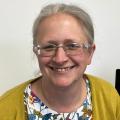
INVERCLYDE'S GP crisis shows no signs of easing as latest figures reveal fewer doctors are looking after an increasing number of patients.
Records show the number of family doctors has fallen by nine in the last ten years and this shortage is compounded by an ageing population locally.
Practices have on average 5,791 patients and they serve a population which includes 16,000 people over the age of 65.
Local MSP Stuart McMillan told the Tele that he has raised residents' concerns with the health board in relation to GP numbers.
Mr McMillan said: "Several constituents have raised the matter with me, especially in relation to GPs off on long-term sick.
“In their response, the health board explained that they have in certain cases provided additional pharmacist hours and an advanced practice physiotherapist to reduce workload for GPs."
New stats show that there are now 62 GPs working in Inverclyde compared with 71 in 2008.
Since 2010 the average number of patients on a GP practice list has jumped by nearly 500.
In recent years senior GPs in Inverclyde have warned there is a danger that patients may no longer even have a designated family doctor.
Dr Glen Sykes and Dr Brian Kerr, of the Regent Medical Practice in Greenock, have raised their concerns with the Scottish Government.
Inverclyde Health and Social Care Partnership clinical director Dr Hector MacDonald has also warned that practices locally struggle to get locums to cover absences and attract very few applicants for vacancies.
But MSP Mr McMillan has defended the government's record on primary care.
He told the Tele: “Earlier this year, the Scottish Government’s new GP contract for Scotland came into force, backed by £110m investment in 2018-19.
"Over the next three years, it will expand the team of healthcare professionals working in general practice such as practice nurses, physiotherapists and pharmacists.
“The Scottish Government has also launched a campaign to attract GPs from the rest of the UK and overseas as part of its commitment to boost numbers by 800 over the coming decade."



Comments: Our rules
We want our comments to be a lively and valuable part of our community - a place where readers can debate and engage with the most important local issues. The ability to comment on our stories is a privilege, not a right, however, and that privilege may be withdrawn if it is abused or misused.
Please report any comments that break our rules.
Read the rules here